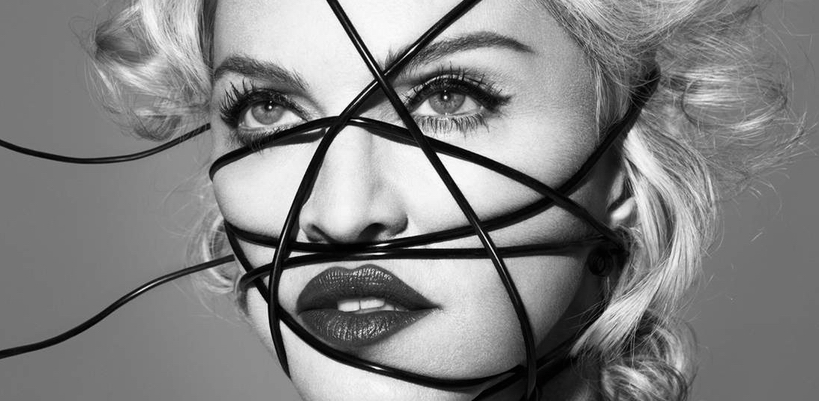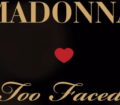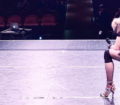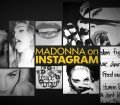
For the promotion of her upcoming album “Rebel Heart”, Madonna gave a few exclusive interviews to Billboard, Rolling Stone and The Guardian where she talked about performing at the Grammy Awards, the leaks, working in the studio and more…
Check it out…
Billboard
Billboard: How are you doing?
Madonna: I’m good. I’m good, I haven’t slept in a week, but I’m good.Billboard: I can only imagine the week that you’ve had so far.
Madonna: Yeah. It’s been a very intense couple of weeks.Billboard: Are you OK right now? As OK as you can be considering what’s been happening?
Madonna: Yeah. I mean, you know, I’m not happy that unreleased demos are out there in the world for people to hear, listen, judge, etc. etc. Once that happened we went into overdrive. A) Trying to figure out where the leaks were coming from, and then B) Trying to combat that with putting out finished music that people could focus on versus demos that were never meant for anyone to hear. So, that led to no sleep.Billboard: Did at any point you turn to someone and say “Bitch, I’m Madonna,” this shouldn’t be happening to me?
Madonna: No. I said, “Shit, this is the age that we’re living in.” It’s crazy. I mean, look at what’s going on with Sony Pictures. It’s just the age that we’re living in. It’s crazy times. The Internet is as constructive and helpful in bringing to people together as it is in doing dangerous things and hurting people. It’s a double-edged sword.Billboard: Since you said that they were stolen, has it changed how you are operating your day-to-day business? Obviously, you’re trying to lock down more stuff, but I mean there’s only so much you can do, considering everything is so virtual. Has it changed your day-to-day business with recording the album and making music?
Madonna: Well, we don’t put things up on servers anymore. Everything we work on, if we work on computers, we’re not on WiFi, we’re not on the Internet, we don’t work in a way where anybody can access the information. Hard drives of music are hand-carried to people. We don’t leave music laying around. We have photo shoots or video shoots, and everyone has to leave their phone at the door. I mean, unfortunately, it sucks, but that’s the way it is. That’s how leaks happen.Billboard: It’s so sucky.
Madonna: It is! Because I want to go to photo shoots and play my music really loud and dance to it, and celebrate it, and I can’t.Billboard: We know crap leaks all the time, fine. But I mean, (this is) so much! You’re so meticulous about how you plan things months in advance… Like you had in your head, “Alright, this how we’re gonna roll out the single, this is how we’ll roll out the album.” And now, a huge wrench has been thrown into the proceedings. Has that pushed everything forward? Are you like, “Alright! Let’s start promoting the single now!”
Madonna: Well, it’s thrown us all into overdrive. We’re having to think outside the box. Think on our feet. I didn’t plan to put my record out this way. I wanted to… plan everything in advance. Release the single, shoot a video, start talking about my record. And you know, prepare for the release of the entire album and have everything set up just so. I mean, that’s the kind of person I am. I think that’s the best way to do it. But we sort of were left with no choice.Billboard: But there’s still going to be a music video?
Madonna: Of course! I will do all of those things that I’ve planned to do. It’s just, you know, people are now listening to six finished songs.Billboard: And they’re great songs, by the way.
Madonna: Thank you!Billboard: (The release of the music) was a wonderful surprise. You’ve been able to take a bunch of lemons that had been thrown at you, and I guess make a lemon drop, or lemonade. I don’t know, take your pick.
Madonna: Yeah. That’s the stupid cliché that me and (her manager) Guy Oseary have been using. We got a lemon and we made lemonade. Kind of works!Billboard: There has to be a silver lining somewhere. And, there you go. So let’s talk about the music. Did you think about releasing these six songs as an EP, and then doing another EP later? Or did you want to make sure that all of the songs stayed together as the full Rebel Heart album — as a piece of work?
Madonna: Originally I wanted to put everything out together. I have an overabundance of songs, and actually, the reason I wanted to call the record Rebel Heart was because I felt like it explored two very distinct sides of my personality. The rebellious, renegade side of me, and the romantic side of me. In my mind, it was almost like I wanted to do a two-record set. So you get this chunk of songs, and that chunk of songs. That was my original goal. But then all the demos leaked and I can’t really go down that road anymore, so I put out (the six songs) first and then, I think a few more songs are going to come out during the time of the Grammys. Then the rest of the album will just come out together (in March), and they’ll just get my rebellious and romantic side all mixed in together.Billboard: You mention the Grammy Awards… I’m already picturing you on the Grammy Awards performing “Living For Love” with various guests…
Madonna: Mmmhmm.Billboard: …I’m picturing how that would be wonderful performed on the Grammy Awards, perhaps.
Madonna: Yes, that would be wonderful. That’s possibly something that’s gonna happen. (Laughs.)Billboard: Possibly?
Madonna: Yes. Possibly.Billboard: Can’t spill all the beans right now.
Madonna: No.Billboard: I want to talk about the album’s first single, “Living For Love,” specifically. We had Diplo on the cover of Billboard a few months ago. He was saying that (the song) had 20 different incarnations. Was he exaggerating by saying 20, or is that true?
Madonna: Uhm… (long pause). Twenty might a little too high. But definitely more than 10. A lot of different versions. We knew we wanted to make a dance record. But you know, there’s so many different levels of dance music and even different categories of house music. So, it was really like, what’s the bass line gonna sound like? Is it gonna be really stripped down and sparse, or is it going to be loaded up? Is it gonna be Chicago house? Is it gonna be U.K. house? It’s like, all over the place. Is it gonna be a little bit of one vocal line? Is it gonna be a whole choir singing? So we were experimenting and trying out different things. They all sounded good, but at the end of the day, we wanted it to sound timeless, also. Not just something of the moment.Billboard: Is that MNEK on the track as well?
Madonna: The thing is, we did do a version where MNEK is singing. The original song, when we first started writing it, was with a singer that Diplo works with all the time…who sounds like MNEK. So, there will be remixes with MNEK’s voice on it, but this particular one that’s out right now (does not have MNEK). And then there’s a female singer whose name is Annie, is from the U.K. as well, who sings with the (London Community Gospel Choir), and she also lended her voice to the record. And by the way, I’m a huge fan of MNEK.Billboard: I thought it Alicia Keys was singing on the song with you. But I was wrong, it’s not Alicia Keys.
Madonna: Oh no, Alicia Keys isn’t singing on it, she’s playing piano on it.Billboard: Oh! Okay. Geez, good grief. It’s so hard to keep track.
Madonna: I know! (Laughs.) Alicia plays the piano, and then the female voice is Annie… there are versions of “Living For Love” that MNEK is singing on, and those will be coming out, but just not yet.Billboard: It has that right balance of soul music meeting house music. It’s the right blend of the two, where you were able find the right balance, where it doesn’t sound jarring. It actually sounds like it’s meant to go together.
Madonna: It’s kind of like the old me and the new me all mixed in together.Billboard: It’s all you! It’s all versions of you.
Yeah, exactly. Yeah!Billboard: “Ghosttown.” It’s such a cool song. It’s so evocative. The lyrics are so beautiful. In my head, I’m picturing there’s a ghost town, it’s cold, there’s two souls, they’re the only people left. Was that a song that you wrote with Evan Bogart, Sean Douglas and Jason Evigan, or did it come to you already finished?…
Madonna: Nope.Billboard: …How did that song come together?
Madonna: We all get into a room together. They start playing their chords and then we just start thinking about… When I write with people, we always try to come up with a theme. What do we want to write about? So this one is about the city after armageddon. The burnt out city, the crumbling buildings, the smoke that’s still lingering after the fire. You know what I mean? There’s only a few people left. How do we pick up the pieces and go on from here? Kind of dramatic. (Laughs.) But not entirely impossible at this stage of the game.Billboard: Yeah, well, at the rate things are going, who knows?
Madonna: Exactly. One must be realistic and be prepared for anything.Billboard: One must be realistic. Because you know in a few years, we could all just be in some burnt out ghost town together.
Madonna: Yes, exactly! And we’ll all be in our version of a “Ghosttown” or in a version of a “Ghosttown,” and at the end of the day, all we’re going to have left is each other. So that’s really what that song is about.Billboard: You can see a music video already in your head.
Madonna: Yeah! For sure.Billboard: It reminds me of when “Gang Bang” (on MDNA) came out. It was so cinematic…
Madonna: Visual.Billboard: …you could see it. Let’s talk about “Unapologetic Bitch.” Did someone call you that at some point…
Madonna: Oh, no.Billboard: …and you’re like, “Let me make a response (record)?”
Madonna: No.Billboard: No one would ever call you that.
Madonna: No, I’ve never heard anyone refer to me as that. That just came out of the ether.Billboard: When you were writing that in a writing session…
Madonna: No, it’s kind of like an extension of… at the beginning of my career, when all the pictures of me came out in Playboy and everybody expected me to cower in shame. And I just said “I’m not ashamed. I have nothing to hide, and I’m not sorry.” So, it’s my version of “Je Ne Regrette Rien.”Billboard: Well, you have nothing to apologetic about, obviously.
Madonna: Well, certainly not in that circumstance. (Laughs.)Billboard: Yes, we all understand, there are different things that one should be apologetic for, but certain artistic decisions…
Madonna: Absolutely. Yes, one should be apologetic in certain circumstances. But not in that circumstance.Billboard: You’ve worked with a lot of people on this record. We’ve been following you on Instagram all year. A zillion people.
There’s been a lot of cooks in the kitchen.Billboard: A lot of your albums tend to be (produced and written) with a core group of people. Was that hard when you have so many people to keep a through line?
Madonna: Yes. Very hard. Very, very, very, very hard. It’s extremely challenging for me working with a lot of young DJs who never can stay in one city for more than five days. So we never got to finish things. And so then I’d start things with one group of people, and then I’d start something with somebody else, and then they’d have to leave town and the other person would come back. It’s a chaotic way to work. You get a lot of ideas, but there’s a lot of confusion. It was challenging to keep cohesion with the sound and the direction of the record with people coming and going in a revolving door of creativity. So, I was just the person standing there with a clipboard on in the headlights, going “Ok!” (Laughs.) A little bit like a school teacher.Billboard: Diplo is super involved with the album, obviously. Is he sort of quasi-executive producing it?
Madonna: No.Billboard: Is he involved on more than just the three songs (released so far)?
Madonna: We did more than three songs. I wouldn’t say he was an executive producer, but he has a very strong voice in the record. We collaborated on a lot of music. You know, he heard other songs and gave his input on what he liked and what he didn’t like, but I wouldn’t call him an executive producer.Billboard: Then I won’t!
Madonna: He’s a badass DJ who has great ideas.Billboard: Are you actually done writing and recording the album?
Madonna: Uhm… I am done writing. I’m almost done recording. Almost done. Got just few more little tweaks to do. But first I had to get those six songs out.
Rolling Stone
Rolling Stone: It’s safe to presume you’ve had a busy couple of days?
Madonna: Oh my goodness. So busy. Let’s talk about something good.Rolling Stone: The album focuses on two themes: listening to your heart and being a rebel. When you sat down to write, were you guided by these ideas above any musical plans?
Madonna: I never sit down and consciously think I want to write a song about a subject. Music leads me to ideas and to where I want to go emotionally. When I first started, I was writing with Avicii’s team of writers and they were separated into two different groups. One of them had a much more upbeat approach to songwriting, sonically speaking, and the other team chose darker chords. The music leads me – so I get lost in the sound of the music, and that creates a kind of emotional palate. I found as I would look back at my songs and witness what I had written, I was coming from two very distinct places. That happened organically, not planned out, and I was observing, “Oh, these are two very strong sides of me that I need to express.”Rolling Stone: So decisions about who you trust to guide you, musically, are clearly quite crucial.
Madonna: Yeah. And sometimes in the writing phase of the music, there are some people who I really felt a connection to, just as human beings, and felt they understood me as a songwriter and a person, so those people were easier for me to write with. Writing songs, you have to be vulnerable, you have to not be afraid to express yourself and to say things or share. It’s almost like writing your diary in front of somebody and reading it out loud. Some people made me feel comfortable and I felt connected to them and other people seemed very strange to me. It was almost like an acting exercise, you know, just putting myself in a room and letting ideas flow even if I didn’t feel so connected to the people.Rolling Stone: “Living for Love” is a pretty triumphant breakup song.
Madonna: It’s a breakup song. [Laughs]Rolling Stone: But it’s not a mopey breakup song.
Madonna: The thing is, lots of people write about being in love and being happy or they write about having a broken heart and being inconsolable. But nobody writes about having a broken heart and being hopeful and triumphant afterwards. So I thought, how can I do this? I didn’t want to share the sentiment of being a victim. This scenario devastated me, but it just made me stronger.Rolling Stone: The track marries a classic house-y vibe with some of Diplo’s very synthetic sounds. Did you encourage him to push it a little bit?
Madonna: Oh, I don’t ever have to encourage Diplo to push anything. In fact, I have to encourage him to tone things down sometimes. He’s a turn-up man. In fact, I think “Living for Love” is probably one of his more mellow productions.Rolling Stone: “Devil Pray” is at risk of being misunderstood as a song encouraging or condemning drugs, but it’s more about a search for spirituality, correct?
Madonna: I don’t think when people are experimenting with drugs they’re actually consciously saying to themselves, I want to get closer to God. I think it’s a primal thing, a more inexplicable thing that happens where I think the feeling people have when they’re high is plugging into the universe and appreciating things or seeing details that they otherwise may have missed, or feeling a certain kind of euphoric joy. Ultimately those feelings never last, because the drugs wear off and then there’s the aftereffect. Whenever you synthetically make yourself feel euphoria there’s going to be the crash. I’m certainly not judging people who take drugs or saying “don’t do drugs,” however, I’m saying you can do all of these things to connect to a higher level, but ultimately you’re going to be lost. People who are getting high are instinctively also trying to connect to a higher level of consciousness, but are doing it in a way that will not sustain them.Rolling Stone: There’s also a message of seeking spirituality via togetherness and not being isolated.
Madonna: Yeah, and that’s another subtle message of the song, and you really do have to pay attention to the lyrics, and I hope people do over time. The way we’re going to change the world, or the way we’re going to ultimately feel joy, is through unity. I’m certainly not encouraging religious behavior; when I say people are thinking in a religious way, I think they’re thinking about rules and dogma and laws that separate. When I say spirituality, I mean a consciousness that has an understanding that we are all in this together, that we are all one. We have to find a way to feel joy and to bring joy to the world together. That ultimately is with consciousness, not drugs.Rolling Stone: We’re at a critical moment — a weird and scary time — that doesn’t seem far from the fallen world of “Ghosttown.”
Madonna: Yes, we are, and that song is kind of looking at the world in a way, seeing civilization collapse around us, for lack of a better word. And at the end of the day, if we run out of oil and we don’t have electricity and we don’t have all the modern conveniences, and we have no phones and computers, all we’re going to have is each other, is humans. And that song’s about recognizing that.
Still, it’s a comforting song, it’s not a frightful or fearful song.
No. Again, hopeful. Looking at the destruction and seeing hope. And that’s what a lot of my songs are about on this record.Rolling Stone: If “Living for Love” is the inspiring breakup song, “Unapologetic Bitch” is the “fuck you.”
Madonna: Yeah. [Laughs] But it’s like, fuck you, I’m going to have fun. You think you’re going to ruin my life and you think that it’s over for me, but guess what? It’s not. Life goes on.Rolling Stone: Diplo, who produced that track, plays an interesting role in music right now, traveling the world collecting sounds and helping other cultures make sense of them. How did you two relate?
Madonna: You know when you meet somebody and you work with them and you recognize that you both look at life the same way? I’m one of those people, I travel the world also and I engage in other cultures, and I absorb and see the beauty in other culture from many different perspectives — through art, through literature, through music — and reference a lot of those things that inspire me through my work. And I think Diplo does the same thing. So we recognized kindred spirits. When we got together, he didn’t know that side of me and I didn’t know that side of him, so again, not a discussion that we had per se, just more about hey, check this out? Did you hear this? Listen to this track. Do you like this group? Playing each other music that we loved and just recognizing we both enjoyed a lot of the same things, and then just getting to work.Rolling Stone: How does an idea for “Illuminati” come together when you’re working with Kanye West?
Madonna: “Illuminati ” was a song I’d written back in March or April. People are always using the word Illuminati but they’re always referencing it in an incorrect way. People often accuse me of being a member of the Illuminati and I think in today’s pop culture the Illuminati is perceived as a group of powerful, successful people who are working behind the scenes to control the universe. Not people with consciousness, not people who are enlightened. So people were accusing me of being a member of the Illuminati, and I kept going, wait – so first I had to figure out what that meant.Rolling Stone: Do you Google these things, because it’s quite amusing.
Madonna: Yeah. But the thing is, I know who the real Illuminati are, and I know where that word comes from. The real Illuminati were a group of scientists, artists, philosophers, writers, who came about in what is referred to as the Age of Enlightenment, after the Dark Ages, when there was no writing and no art and no creativity and no spirituality, and life was really at a standstill. And right after that, everything flourished. So we had people like Shakespeare and Leonardo Da Vinci and Michaelangelo and Isaac Newton, and all these great minds and great thinkers, and they were called Illuminati.Rolling Stone: Because they were illuminating consciousness.
Madonna: Yes, to go to the root of the word, they were illuminating people. It had nothing to do with money and power. Of course they were powerful, because they influenced people. But their goal was to inspire and enlighten. So when people refer to me as a member of the Illuminati, I always want to say thank you. Thank you for putting me in that category. But before I can say thank you, I feel like I had to write a song about what I believe the Illuminati to be, and what it isn’t.When I played a lot of my songs that were unproduced for Kanye, that song resonated with him. He loved the melody, and he was actually jumping up and down on the soundboard. He literally stood on top of the mixing board — we were worried he was going to hit his head on the ceiling, but he didn’t. He ended up being very excited about that track, and then he added his spin to it, musically, and I love it. To me, he elevated the lyrics with the music. It’s like a siren, alerting people.
Rolling Stone: When you work with Nicki Minaj on a track like “Bitch I’m Madonna,” do you give her guidance or let her go wherever she desires?
Madonna: Whenever we work together she always sits with me and listens to the song, and says “tell me what this song is about to you.” She’s very methodical in her thinking. We talk about it, she writes down words that I say describing what the song’s about and the sentiment that I’d like her to get out there, and then she goes away and she works on it. She writes it, she comes back. She does a version of it, we talk about it. It’s a back and forth until she gets it right. It’s a total collaboration.Rolling Stone: You said you wanted every song on this album to stand on its own without production, to be able to strip down each track to its acoustic root and still have it work. Was that something you’d thought about on past albums?
Madonna: No, I didn’t. A lot of times I just thought about sounds. Or I want to make a dance record, or I want to write a ballad. This time I really thought — this is all part of my Armageddon thinking right now — the world is changing and for me, it’s like, OK, what does it all come down to at the end of the day? It comes down to the songs.Rolling Stone: If you’re alone at the end of the world, can you just perform the songs?
Madonna: Yes. If it’s just me and the guitar, can I still do it? All the songs, I needed to be able to break them down on the most simple level and be able to impart what I have to say with my voice and a guitar.Rolling Stone: Have you started thinking about reinventing these songs for tour?
Madonna: I’m thinking about it. Right now, the deadline of getting this music out for iTunes was a 50-yard dash.Rolling Stone: The songs went Number One in 41 countries – that’s got to feel good. Madonna: And demonstrate true fans are still willing to pay for the music.
Yeah. They’re extremely [loyal] and I’m really super grateful for that.
The Guardian
Obviously there is a person, or a group of people behind this that were essentially terrorising me. I don’t want to sound alarming, but certainly that’s how I felt. It’s one thing if someone comes into your house and steals a painting off your wall: that’s also a violation, but, your work, as an artist, that’s devastating. I’m an artistic person, I’m very expressive. I’m sorry if words alarm people, but that’s what it felt like. It was not a consensual agreement. I did not say ‘hey, here’s my music, and it’s finished.’ It was theft.
It wasn’t just music. Images were coming out that I’d never seen before. It was then I started to think ok, what’s happening? What is the source of the leak? It’s not just one person, or someone sitting next to me in an office, or someone in a recording studio. I’ve had leaks before, a couple of weeks before an album was released, a lot of other artists have too, we all have to deal with that. But to have songs in the earliest demo form, from last March, that’s extremely disturbing to me.
You have to rethink your approach to making music, how to get the information back and forth to people, how to work in a more secure environment. It’s alarming . Alarming because what do we do as artists? We want to finish writing our book or editing our film, we want to finish writing or producing our music. People need the arts, we need to be inspired, we need to hear people’s records and see people’s films. Why destroy that process for creative people? It’s going to affect everybody.
There’s a lot of talk in pop music right now about people saying, ‘Oh, this person’s a member of the Illuminati,’ or they’re Illuminati, or you’re Illuminati, and people’s idea that there’s a group of entertainers or very wealthy people, they’re referred to as the Illuminati, and they work behind the scenes and they control things and they’re very powerful, and there’s possibly a reference to something dark, or black magic, or something like that. And I have to say I laugh at all of those things.
I think there are some people who don’t mind being referred to as that, but I know who the real Illuminati are, and where that word came from. The root of the word is “illuminate”, and that means “The enlightened ones”, and it came from the Age of Enlightenment, when a lot of arts and creativity flourished, from Shakespeare to Isaac Newton, to Leonardo Da Vinci, Michelangelo: the philosophers, artists, scientists were all engaged in a kind of high level of consciousness through their work, and they were enlightening and inspiring people around the world. And those are the true Illuminati. So the purpose for writing that song was really in a way, ‘So, if you think I’m the Illuminati, then thank you very much, a compliment, because I would like very much to be part of that group, the real Illuminati, and this is what it’s not’.
I’m certainly not out in nightclubs all the time, but my kids are. My daughter and my son are my A&R people now. They’re constantly playing stuff in the house, in the car, and I’m like, “Who’s that? Who’s that? Who did that?” They bring me stuff all the time. And I listen to music as well, it’s a combination. I manage to surround myself with people who introduce stuff to me, keep me in touch, in tune. I feel like just as connected to street culture, pop culture, underground culture, as I’ve ever been.
Madame X is available in Box Set, CD, Vinyl and Cassette!
Get your copy HERE!





